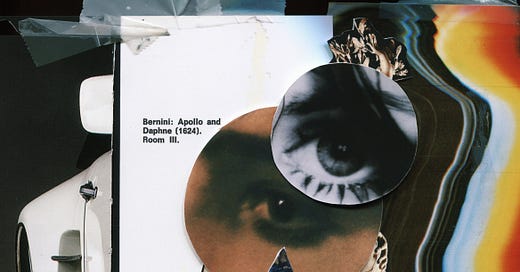Today’s the last day to to get a special discount on a year long sub! Current subscribers are also eligible for discounts. For more info, click here.
After New Years of 2021, I decided that I needed to get hooked on a dumb but heartwarming sitcom. As I scrolled through the Netflix algorithm’s suggestions, I settled on the UPN series The Parkers. The show ran for five seasons between 1999-2004 and starred Mo’Nique, of The Queens of Comedy and later Precious fame, and for whom I’ve been a stan since 2009 when I religiously watched her late night BET talk show back-to-back with The Wendy Williams Show.
A spin-off of Moesha, The Parkers features Moesha’s (R&B star Brandy) friend Kim Parker and her mother Nikki. The series starts on their first day at Santa Monica Community College. Though Nikki is 36 years old, she begins her freshman year with excitement, grateful for the opportunity to get an education after dropping everything to raise Kim as a single teen mom. We soon meet Kim’s friends T and Stevie (the token “uh oh Oreo”), and Stanley Oglevee, a professor of AfAm Literature with whom Nikki becomes pathologically obsessed.
The show’s ratings were high for most of its run, winning over viewers with the captivating mother-daughter chemistry between Kim and Nikki, the goofy, at times absurdist (and very often politically incorrect, especially by today’s standards) humor, numerous celebrity cameos, and Mo’Nique’s irresistible charm and comedic genius (and you should def read
’s glowing profile of her for us here).Watching The Parkers leaves you laughing while also touching your heart with its moments of sentimental and moral depth. It also is socially significant for its boldly empowering (but not preachy or condescending) depiction of black women. (Viewers were also hooked by the subplot featuring the fictional yet exceptional R&B/Hip Hop group Freestyle Unity composed of Kim, Stevie, and T, leaving many wondering why the show’s creators never decided to release a soundtrack including their infectious songs).
But the most salient social implication I’ve taken away from watching the series (nearly four times over in its entirety) is the brand of institutional models it portrays: from family and friendship structures, to church community and college campus life. What we find is a tight-knit and dynamic ethos, a sense of neighborliness and interdependence that flies in the face of today’s idealization of self-sufficient neoliberal individualism.
Further, its depiction of a deeply proletarian, mostly Black and Hispanic community college that is full of vibrant and active students and professors, whose happiness is rooted in their relationships with each other and in their appreciation of their classes and activities for their own sake, is deeply countercultural. As today’s narrative would have it, happiness is not possible in such an environment. The working class cannot find true happiness in having strong familial ties, stable, adequately paid work, and strong moral convictions and cultural roots, alone. One can only be happy if they aspire to live a bourgeois, elitist life—aiming to get into a competitive school that will offer programs that will help them get jobs among society’s upper echelons (and thus unmooring them from relational and moral commitments). Relationships and education, within this view, are not goods in themselves, but tools, mere means to an end.




